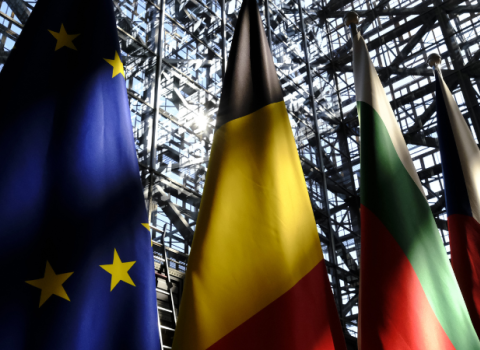Europe's creative and cultural industries are big, important and growing fast. How can EU programmes help? A Science|Business workshop, supported by the European Commission, gathered suggestions. Here are the results.

The cultural and creative industries (CCI) are big: about 4.2 per cent of European Union GDP. They are important, employing 6.7 million Europeans in 2.45 million companies, large and small. They are diverse: indie films, online news, fashion catwalks, ancient libraries, trendy podcasts, blockbuster Van Gogh exhibitions, streaming pop songs and much more. In fact, they’re so diverse that Eurostat doesn’t even have a formal statistical category to describe them all.
Download the report
And – surprise – these industries are politically important, for European society and for Europe’s place in the wider world. They are a vital part of our heritage, our culture and our future. They employ, entertain and inform us at home, and abroad they are key to what EU leaders recently proclaimed as the “soft power” they wish to project to the wider world.
So it is that, in the past few years, mounting rounds of legislation and funding in Brussels and member state capitals have been aimed at strengthening these industries. A portfolio of new EU programmes is being developed in Brussels that could help. There’s the €94.1 billion Horizon Europe R&D programme to include action on CCI. There’s the €9.2 billion Digital Europe programme for infrastructure they could use. There’s Creative Europe, a €1.85 billion package of targeted measures. And there is the €38 billion
InvestEU programme, which also helps finance cultural and creativie activities.
How will these bold initiatives work? What more could or should be done? Those were the questions under discussion at a special roundtable organised 11 April 2019 in Brussels by Science|Business, supported by the European Commission and hosted by the Basque Delegation to the EU. “We’ve come to the point now, where we’re thinking about what could come next,” said Claire Bury, deputy director-general of the Commission’s Directorate-General for Communications Networks, Content and Technology (better known in Brussels as DG Connect.)
The discussion included policymakers, academics, and creative industry representatives. Participants exchanged a diversity of views, but there was general agreement among them that Europe needs to integrate its fragmented market for cultural content to compete with major digital platforms, and to overhaul competition policy to address what some see as anti-competitive practices in digital industry.
Participants also agreed on a need for open standards in new technologies, and effective coordination of the many different EU programmes that affect the cultural sector. And above all, they urged networking – ways to get Europe’s techies and creatives connecting, sharing and building a future together.
Download the report





 A unique international forum for public research organisations and companies to connect their external engagement with strategic interests around their R&D system.
A unique international forum for public research organisations and companies to connect their external engagement with strategic interests around their R&D system.